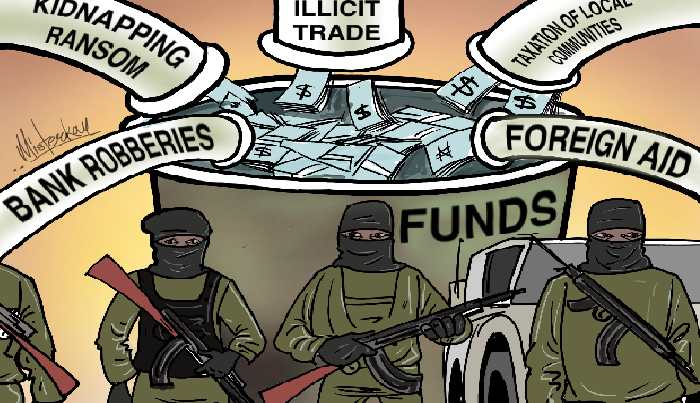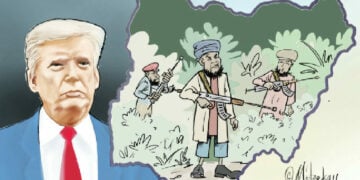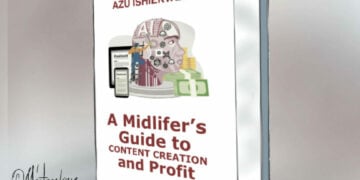Another day, another conspiracy theory. This time, the honour of supposedly bankrolling Boko Haram goes to USAID, courtesy of a U.S. congressman who appears to have uncovered what no intelligence agency, no war correspondent, and certainly no Nigerian official has ever managed to prove. The claim is simple: a foreign aid agency dedicated to development and humanitarian assistance is, in fact, moonlighting as a terrorist financier. If that sounds ridiculous, that’s because it probably is.
But let’s take a step back. What if, instead of reacting with outrage or blind acceptance, we decide to think critically? What if, for once, we resist the urge to chase after international boogeymen and focus instead on the structural realities that have enabled Boko Haram to thrive for over a decade?
The Obsession with Foreign Puppeteers
There’s a longstanding fascination in Nigeria with the idea that our problems are always manufactured elsewhere. If it’s not France, it’s the CIA. If it’s not the CIA, it’s a former president. If not him, then a shadowy group of elites sitting in air-conditioned boardrooms, signing off on terror budgets over fine wine and cigars.
It’s a tempting narrative—one that absolves us of responsibility. After all, if Boko Haram is simply a pawn in the hands of foreign players, then there’s little to be done except complain about global injustice. No need to ask tough questions about local governance, security failures, or economic inequality. No need to interrogate why, despite billions poured into defense budgets, insurgents remain better equipped and more motivated than our own troops.
But reality is rarely that neat. Boko Haram did not materialize out of thin air, nor was it injected into Nigeria by a foreign hand. The movement grew from a complex web of historical grievances, socio-economic despair, and political neglect. But why confront these uncomfortable truths when it’s easier to point fingers at foreign powers?
The Real Engines of Insurgency
If we are looking for Boko Haram’s true sponsors, perhaps we should start by examining the everyday realities of Northern Nigeria.
For years, the region has faced chronic underdevelopment, with limited access to quality education, healthcare, and economic opportunities. Entire generations of young men, with little to lose and even less to hope for, have become easy recruits for any movement that offers them a sense of purpose—however twisted. When the state fails to provide dignity, extremism fills the vacuum. The appeal of radical groups is not always about ideology; often, it’s about survival.
Then there is the issue of corruption. Nigeria’s defense sector has been a black hole where money disappears but weapons never appear. Soldiers on the frontlines have repeatedly complained of inadequate equipment, unpaid salaries, and betrayals from within. When troops are left with little incentive to fight, and terrorists have access to looted arms depots, who really needs USAID to keep the insurgency going?
And let’s not ignore the political games at play. At various points in Nigeria’s history, insurgency has been used as a bargaining chip, a distraction, or a tool for political manoeuvring. The timing of major attacks has often coincided with crucial electoral moments, budget approvals, or power struggles. But sure, let’s keep pretending that only external forces benefit from prolonged insecurity.
The Business of War
Beyond ideology, there is another undeniable factor fueling Boko Haram: profit. The group has long transitioned from a fundamentalist sect to a well-oiled criminal enterprise. Through a mix of bank robberies, ransom kidnappings, illicit trade, and taxation of local communities, Boko Haram generates substantial revenue without the need for external sponsors.
Let’s not pretend that Boko Haram’s bank heists were minor incidents. From Maiduguri to Damaturu, Gombe to Mubi, they stormed banks, emptied vaults, and walked away with millions in cash. At some point, attacking banks became a routine operation, a part of their revenue stream. Perhaps some would argue that USAID secretly left stacks of cash in those vaults for them to pick up?
Then there’s the kidnapping industry—arguably one of Boko Haram’s most lucrative ventures. The ransom economy alone is enough to keep the insurgency alive. From high-profile politicians to schoolgirls, captives have been exchanged for millions of dollars in negotiated deals that no one ever publicly admits to. The moment ransom payments became a norm, Boko Haram’s sustainability was guaranteed.
A notable example was the ransom paid for the release of high-profile figures and foreigners. A single kidnapped French family allegedly fetched Boko Haram a staggering $3 million. Aid workers, schoolgirls, expatriates, and even government officials have been ransomed for fortunes. And yet, we are expected to believe that without USAID’s involvement, Boko Haram would be penniless?
And let’s not forget war profiteers on the government’s side. There are vested interests in ensuring that the conflict never truly ends. Defense contracts, arms deals, and security allocations are all lucrative ventures. Conflict has become a marketplace, and in a marketplace, the last thing anyone wants is for business to stop.
The Weapons Trail No One Talks About
We must also consider how Boko Haram has continuously armed itself. They have raided military barracks, seized weapons, and looted entire armouries. On several occasions, they have been spotted using military-grade weapons, vehicles, and uniforms—equipment originally meant for the Nigerian military. Is USAID also secretly running arms shipments into Nigeria’s war zones, or should we be looking at more realistic explanations?
The Nigerian government itself has, at various times, admitted that weapons meant for its own troops ended up in the hands of insurgents. Corruption within the ranks has led to instances where arms meant for national defense mysteriously vanish. But sure, let’s ignore that and focus on USAID.
Then there’s the issue of porous borders. Arms smuggling has been a long-standing problem in West Africa, with weapons flowing from conflict zones in Libya, Mali, and Chad. The black market for arms is thriving, and Boko Haram has never struggled to acquire sophisticated weaponry. But instead of tracing these networks, we choose to chase after American development funds.
Beyond Convenient Scapegoats
To be clear, none of this means USAID—or any foreign entity—is beyond scrutiny. International organizations operate in complex political environments, and their actions should always be subject to accountability. But extraordinary claims require extraordinary evidence, and so far, none has been presented beyond speculative rhetoric.
If there is credible proof that USAID—or any foreign organization—is funding Boko Haram, let it be presented transparently. But until then, it serves no one to keep chasing convenient scapegoats while ignoring the real conditions that allow terror to flourish.
Rather than looking outward for culprits, perhaps it’s time we ask tougher questions at home. Who benefits from the continuation of this conflict? What systemic failures have allowed Boko Haram to persist for this long? And most importantly, how do we dismantle the economic and political structures that make insurgency such a profitable venture?
Boko Haram’s survival is not a mystery. The answers have always been there. The real question is whether we are willing to confront them. Until we do, expect more wild accusations, more deflections, and more excuses—anything to avoid facing the uncomfortable reality that Nigeria’s problems are, more often than not, self-inflicted.





